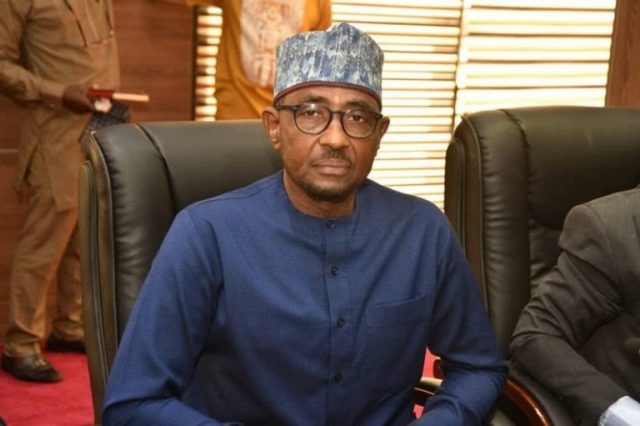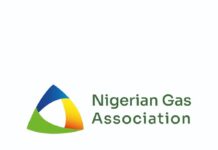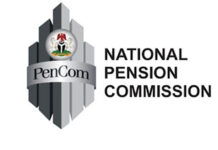. Says Nigeria attracted Over $400m For Investment in the sector
In an effort to ensure a transformed and well managed energy sector , the Nigerian Midstream and Downstream Petroleum Regulatory Authority (NMDPRA) has assured that fiscal and operating strategies guiding the petroleum industry are course to transform the country into continental energy powerhouse.
The Authority also affirmed that Nigeria has attracted over $400 million for investment in 86 and 65 new daughters and mother stations under construction respectively.
He stated that in the refining sector, Nigeria is steadily re-emerging as a major supply hub, and that Nigeria’s refueling capacity has therefore risen from 20 to 56
He said the biggest single train refinery in the world, the 650,000barrel per day capacity Dangote Refinery, built at about $20 billion, the refineries of the Nigerian National Petroleum Company Limited (NNPC Ltd) are gradually being restreamed to ramp up production.
He added that modular refineries are upscaling both in capacities, utilization and in numbers.
According to him, with these, Nigeria is already a net exporter of some petroleum products with the target of all petroleum commodities.
Authority Chief Executive, Engr Ahmed Farouk, who spoke in Abuja on Thursday, stated that the NMDPRA has also articulated regulations to facilitate business growth in the industry, ensure consumer protection, promotion of gas development and evolution of a competitive market environment.
Engr Ahmed was speaking at the inaugural Petroleum Industry Stakeholders Forum (PISF) institutionalized by the NMDPRA “to provide a veritable platform for periodic engagement between critical stakeholders to review the status of the industry, formulate policies, galvanize industry support for policy implementation and deliberate on best actions to resolve emerging concerns.”
He stated in his address that “the Forum will aid speedy resolution of issues by the policy-making and regulatory bodies to mitigate disputes that may otherwise lead to unnecessary and costly litigations or alternative dispute resolutions.”
He cited Section 216 (2) of the Petroleum Industry Act (PIA) as providing the framework for consultation with stakeholders to ensure business continuity, and a competitive investment environment. He added that the also provides for consultation with stakeholders before publication and operationalization of applicable Regulations.
In pledging to continue with constructive stakeholder engagements realization of presidential mandates on the industry, Engr Ahmed declared that the NMDPRA is further partnering with the S&P Global Commodity Insights to organize a workshop targeted at creating a robust platform for regional collaborations among oil industry regulators, policy formulation, creation of a trading hub in West Africa and a more transparent West African pricing assessment and benchmarking.
The platform, he noted, would further support the development of West African refined fuel market.
He declared that existing policy measures and the revival of the domestic refining industry were positioning Nigeria as a major supply hub. He told the audience that available refining capacity has made Nigeria a net exporter of some petroleum products with the target of all petroleum commodities.
He also pointed out that government has incentivized the development of CNG as a viable alternative to Petrol, adding that the NMDPRA has supported the PCNGI which has over the last year, helped stimulate 186 new conversion centers increasing Nigeria’s conversion capacity by over 2500%.
“These conversions alongside new buys have raised Nigeria Nigerian Gas Vehicles NGV population to an estimated 30-50,000 vehicles and trucks and it continues to grow daily.
“With over $400 million attracted for investment in 86 and 65 new daughters & mother stations under construction respectively, Nigeria refueling capacity has therefore risen from 20 to 56. The collaborative efforts of PCNGI NMDPRA and SON led to the development of standards and the Nigeria Gas Vehicle Monitoring System to ensure safety which is already in pilot phase, expected to be launched in 2025.
“Indeed, Nigeria is poised to be the energy center for Africa, with competitive financing and favourable regulatory environment,” Engr Ahmed declared.
On supporting the development of domestic gas market, the regulator stated that the NMDPRA has emplaced a gas pricing regime that supports the growth of gas supply, infrastructure and utilization projects in line with the provisions of the PIA.
“The Authority has enacted 20 regulations to give effect to PIA provisions. We have reviewed the Gas Transportation Network Code for improved access to natural gas and operationalized the MDGIF as a catalyst for gas infrastructure development and investments,” he said.
On facilitating entry into the industry, Engr Ahmed stated: “We have also upscaled our processes for Issuance of Licences, Permits and Authorizations for the establishment and operations of new refineries, gas plants, pipelines and other hydrocarbon handling facilities.”
Other measures deployed by the government, he listed, include inter-agency collaboration involving security agencies to curb sharp practices such as diversion and smuggling of petroleum products.
On quality and standards, Engr Ahmed said that “the NMDPRA also collaborates with the SON, the National Automotive Design and Development Council (NADDC), and National Institute of Transportation Technology (NITT) in ensuring that our mobility CNG growth is achieved in a safe and sustainable manner.”
He paid tribute to the courageous leadership of President Bola Tinubu, “for the bold and consistent decisions to fully deregulate the industry, unify the foreign exchange rates, and also for the many policy decisions to unlock the potentials of the petroleum sector thereby facilitating growth, creating wealth & employment towards deepening the shared prosperity of our Country.”
He noted that government has ensured crude oil supply to domestic refineries, enhanced energy security, improved natural gas supply for the domestic and export market, resuscitated midstream and downstream infrastructure, and domesticated LPG produced in-country.
The measures, according to him, are geared towards economic prosperity.
To guarantee viability of commercial investments in the domestic gas industry, Engr Ahmed also commended the Special Adviser to the President on Energy on settlement of legacy debt, instituting a workable payment system for gas supply, and other creative policies on ease of doing business.
The results, Engr Ahmed stated, are facilitated through Mr. President’s Executive Orders that provide adequate fiscal incentives. He added that full price deregulation of petroleum products market has enabled the creation of a level playing field which fosters healthy competition and enables investment opportunities.
He explained that the overall reform in the industry has occasioned adequate supply and distribution of petroleum products in the country, with consumers enjoying competitive prices and value-added services.
“The National energy security has been further enhanced with multiple sources of supply. For the first time in many years, the country witnessed the end-of-year festivities and the beginning of a new year without any supply disruption or product shortages that may have lead to fuel queues.
“The contribution of domestic refineries to national energy supply requirements and participation of other Oil Marketing Companies (OMCs) in product supply has been enhanced. Equally, the emerging competitive market environment, downswing in international market price, appreciation in Naira and multiple sources of supply, continue to encourage steady stability in pump price of petroleum products nationwide,” he pointed out.
Engr Ahmed made it clear that the current leadership of the industry including the CEOs of the regulatory agencies is progressively guiding the industry towards maturity and sustainable growth.
























